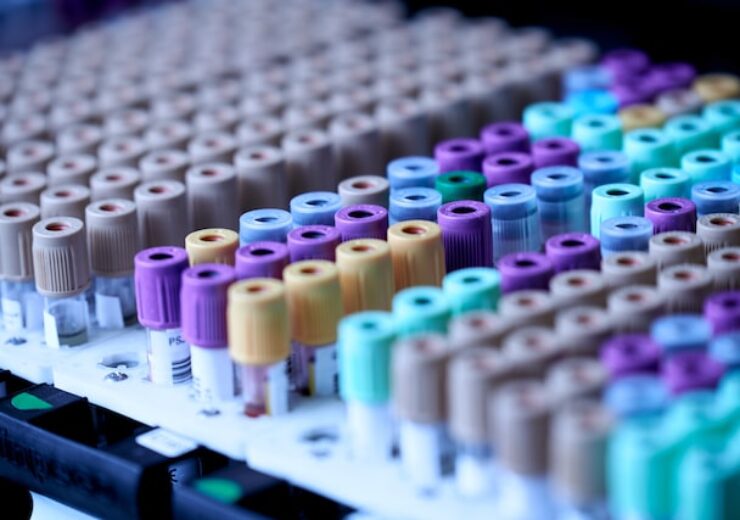The HISCL β-Amyloid Assay Kit, developed in partnership with Japanese drugmaker Eisai, uses blood sample to measure Aβ levels using the company’s automated immunoassay system HISCL-5000/HISCL-800

Sysmex’ amyloid beta test kit approved in Japan. (Credit: Testalize.me on Unsplash)
Sysmex has received Japanese regulatory approval for its in-vitro diagnostic test to measure the levels of amyloid beta (Aβ) in the brain, which is an indicator of Alzheimer’s disease.
The company developed the test, HISCL β-Amyloid 1-42 Assay Kit and HISCL β-Amyloid 1-40 Assay Kit, in partnership with Japanese drugmaker Eisai.
The test kit uses a small amount of the patient’s blood sample to measure Aβ levels using the company’s automated immunoassay system HISCL-5000/HISCL-800.
By measuring the ratio of Aβ peptides in the blood, the test determines the Aβ accumulation in the brain, which facilitates earlier diagnosis and treatment for Alzheimer’s disease.
The HISCL-Series employs chemiluminescence enzyme immunoassay (CLEIA) principle.
Sysmex is planning to roll out the minimally invasive and simple test in Japan market, as soon as possible.
Sysmex in its statement said: “Unlike conventional testing methods, the Product allows testing with blood, thus reducing the physical, emotional, and financial burden on patients with suspected Aβ accumulation in the brain.
“Furthermore, the product is expected to contribute to early diagnosis and early determination of optimal treatment plans for patients.
“In addition, automated assays using the HISCL-Series— which requires only 10 to 30μL of blood (plasma) with a measurement time of just 17 minutes—will also help improve the efficiency and standardization of testing.”
According to the company, Alzheimer’s disease is the most common form of dementia and accounts for nearly 60% to 70% of all cases.
It is characterised by accumulation of Aβ peptides in the brain, causing damage to the nerve cells, which cannot be regenerated once damaged.
Early diagnosis and treatment are essential for the treatment of Alzheimer’s disease, and requires advanced technology to identify the accumulation of Aβ in the brain.
However, conventional testing methods are limited by their invasiveness and cost, and there is a need for less invasive and simpler testing and diagnostic techniques, said Sysmex.
In February 2016, the company has entered into a non-exclusive collaboration agreement with Eisai, for developing new diagnostic reagents in the field of dementia.
The two companies have been developing the test by incorporating their individual technologies and knowledge.
In December last year, Sysmex has filed an application with Japan’s Pharmaceuticals and Medical Devices Agency (PMDA) seeking regulatory approval for the test.
Sysmex stated: “In order to expand opportunities for patients to receive this testing, we plan to prepare for the early introduction of the Product to the market, while working toward its coverage by Japanese national health insurance.”
